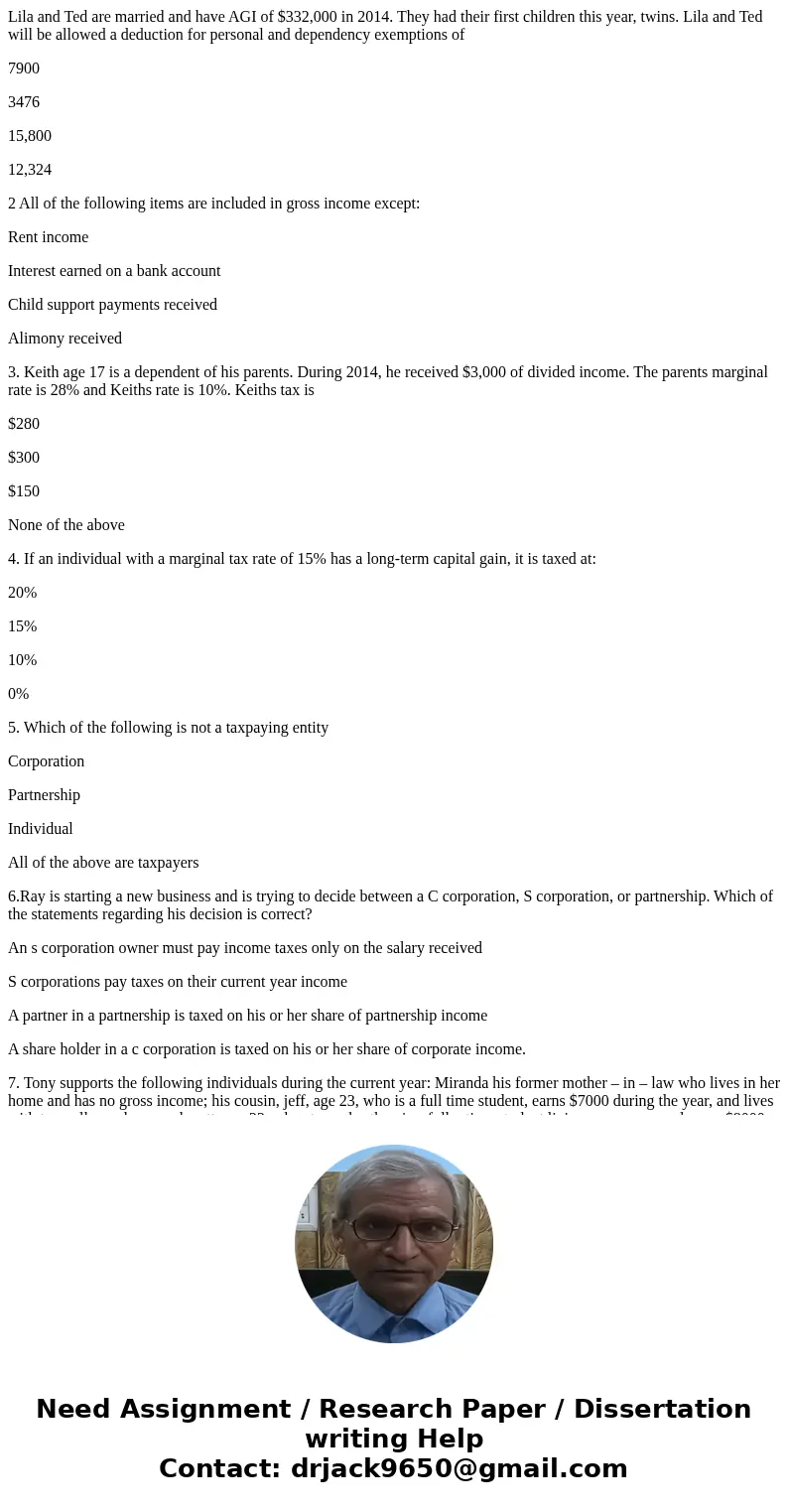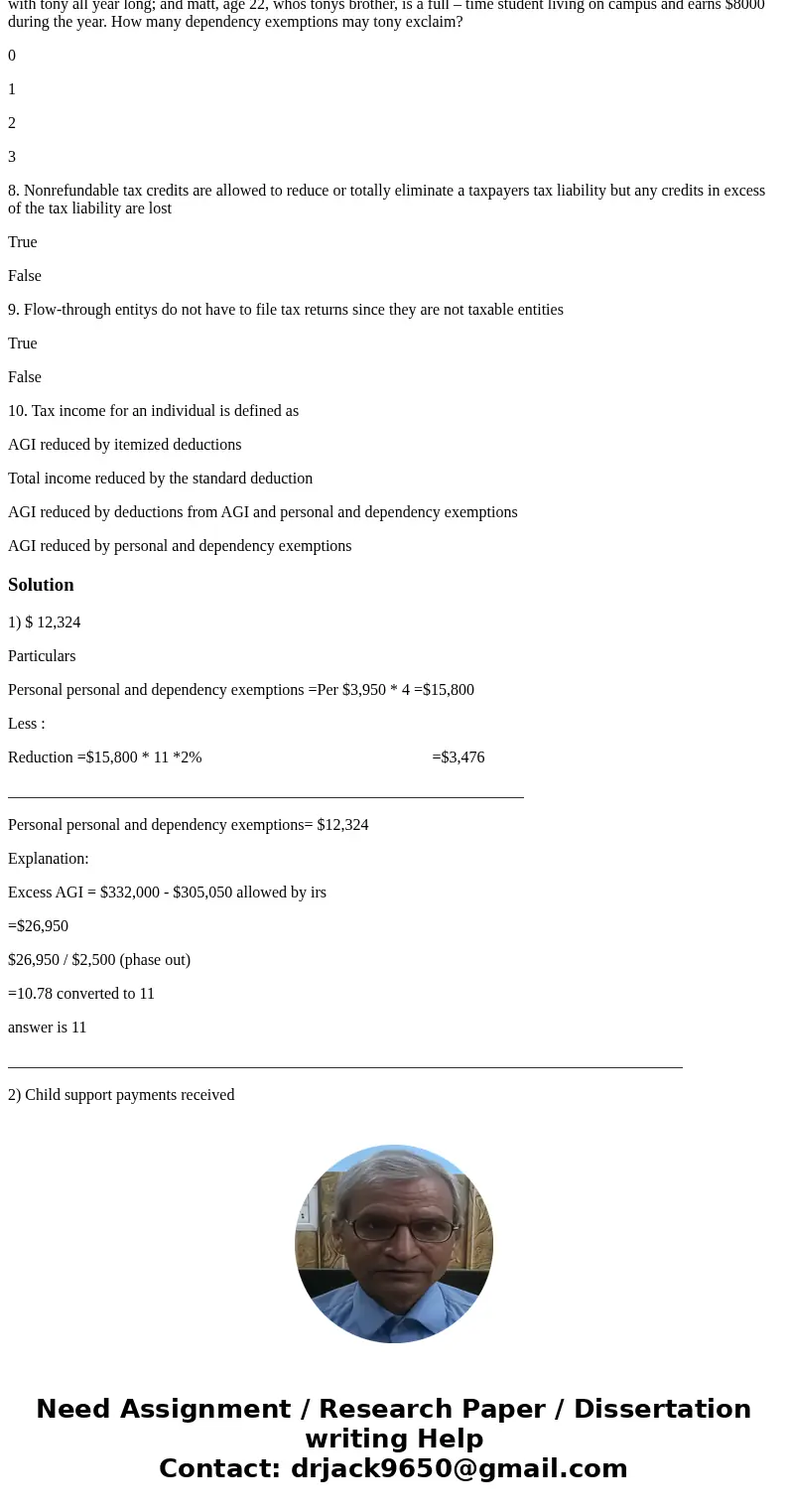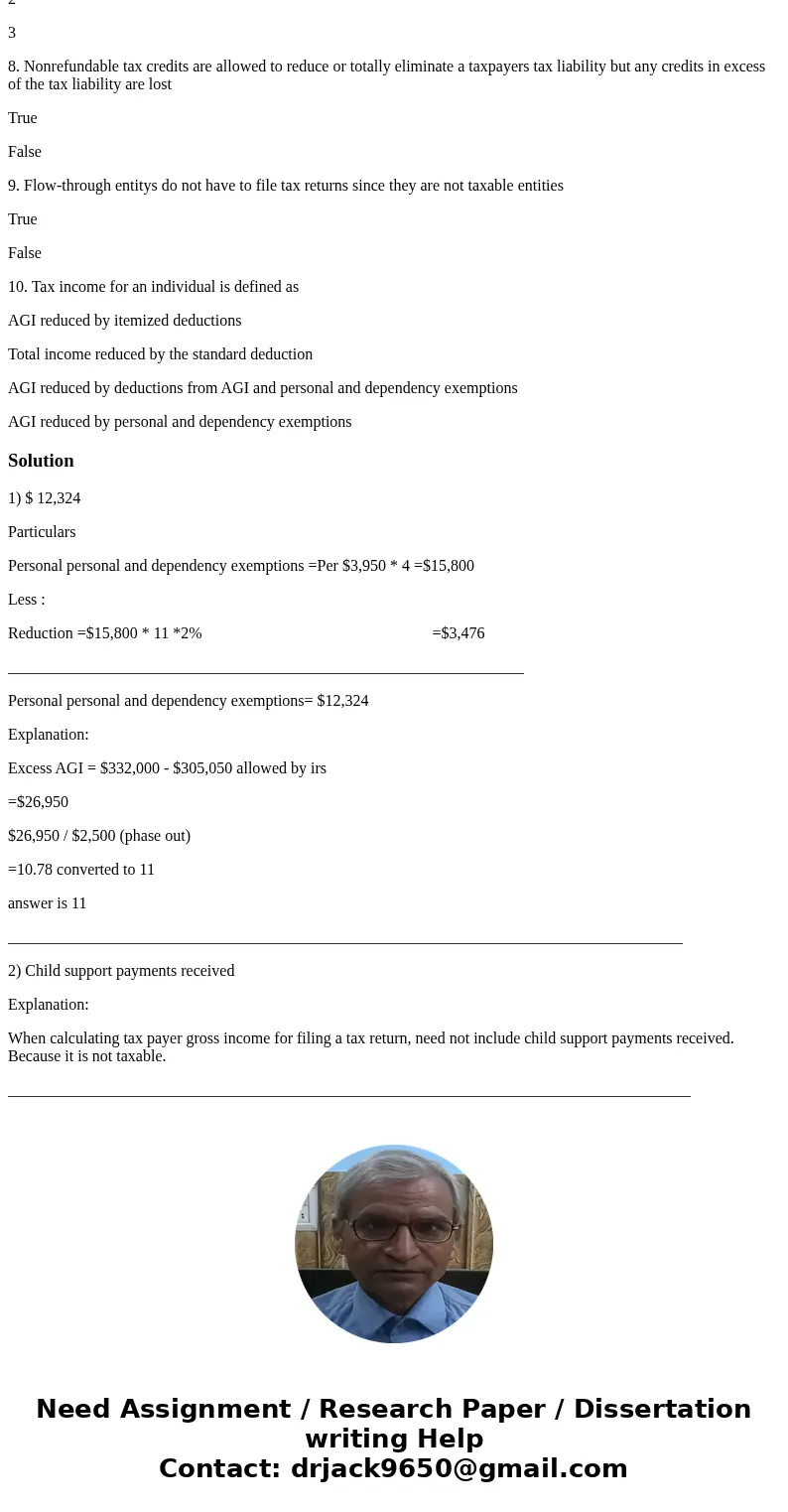Lila and Ted are married and have AGI of 332000 in 2014 They
Lila and Ted are married and have AGI of $332,000 in 2014. They had their first children this year, twins. Lila and Ted will be allowed a deduction for personal and dependency exemptions of
7900
3476
15,800
12,324
2 All of the following items are included in gross income except:
Rent income
Interest earned on a bank account
Child support payments received
Alimony received
3. Keith age 17 is a dependent of his parents. During 2014, he received $3,000 of divided income. The parents marginal rate is 28% and Keiths rate is 10%. Keiths tax is
$280
$300
$150
None of the above
4. If an individual with a marginal tax rate of 15% has a long-term capital gain, it is taxed at:
20%
15%
10%
0%
5. Which of the following is not a taxpaying entity
Corporation
Partnership
Individual
All of the above are taxpayers
6.Ray is starting a new business and is trying to decide between a C corporation, S corporation, or partnership. Which of the statements regarding his decision is correct?
An s corporation owner must pay income taxes only on the salary received
S corporations pay taxes on their current year income
A partner in a partnership is taxed on his or her share of partnership income
A share holder in a c corporation is taxed on his or her share of corporate income.
7. Tony supports the following individuals during the current year: Miranda his former mother – in – law who lives in her home and has no gross income; his cousin, jeff, age 23, who is a full time student, earns $7000 during the year, and lives with tony all year long; and matt, age 22, whos tonys brother, is a full – time student living on campus and earns $8000 during the year. How many dependency exemptions may tony exclaim?
0
1
2
3
8. Nonrefundable tax credits are allowed to reduce or totally eliminate a taxpayers tax liability but any credits in excess of the tax liability are lost
True
False
9. Flow-through entitys do not have to file tax returns since they are not taxable entities
True
False
10. Tax income for an individual is defined as
AGI reduced by itemized deductions
Total income reduced by the standard deduction
AGI reduced by deductions from AGI and personal and dependency exemptions
AGI reduced by personal and dependency exemptions
Solution
1) $ 12,324
Particulars
Personal personal and dependency exemptions =Per $3,950 * 4 =$15,800
Less :
Reduction =$15,800 * 11 *2% =$3,476
_________________________________________________________________
Personal personal and dependency exemptions= $12,324
Explanation:
Excess AGI = $332,000 - $305,050 allowed by irs
=$26,950
$26,950 / $2,500 (phase out)
=10.78 converted to 11
answer is 11
_____________________________________________________________________________________
2) Child support payments received
Explanation:
When calculating tax payer gross income for filing a tax return, need not include child support payments received. Because it is not taxable.
______________________________________________________________________________________



 Homework Sourse
Homework Sourse